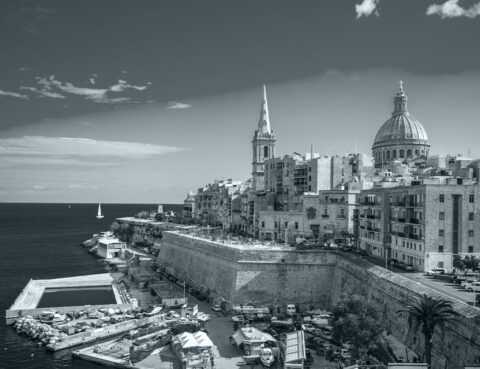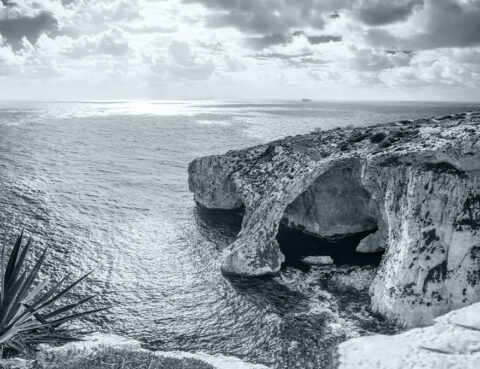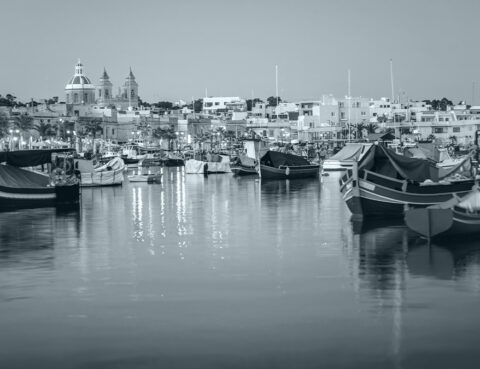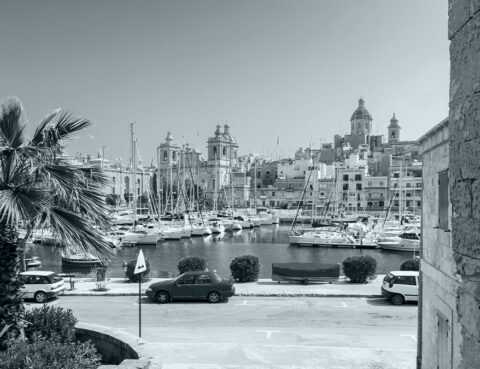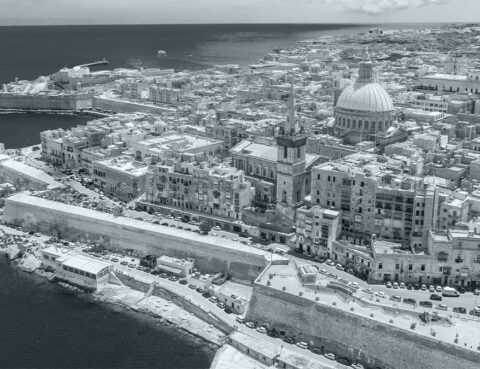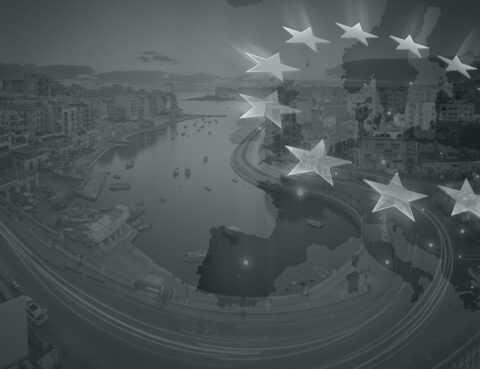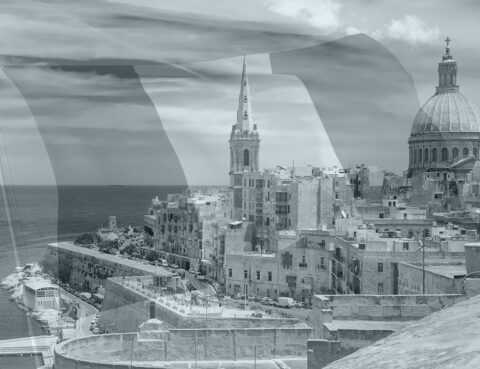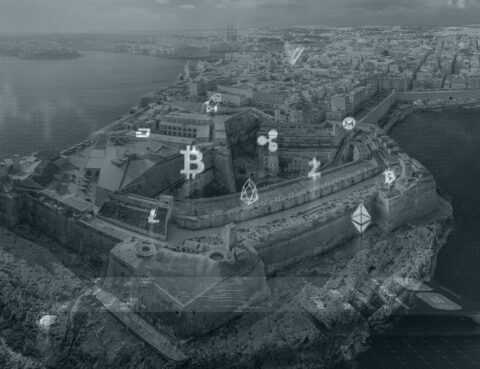In the past few years an increasing number of Ukrainian nationals have been exploring options to secure a second residence or citizenship due to various factors. The motivations behind this trend are multifaceted and rooted in a combination of geopolitical uncertainties, economic considerations, security concerns and the desire for enhanced global mobility. As Ukrainian citizens grapple with these realities, they are seeking alternative options to safeguard their future, embrace opportunities, and build a more secure and versatile life. This article delves into the compelling factors driving this surge in interest among Ukrainian nationals for second residency or citizenship, shedding light on the complex dynamics that underpin this evolving global migration trend.
Europe, with its stable economies, high living standards and strong legal system has become an attractive destination for Ukrainian citizens seeking to enhance their quality of life and secure their future. The attractiveness of Europe for Ukrainians stems from a combination of economic prospects, political stability, access to social services, educational opportunities, and the desire for a higher quality of life. These factors collectively contribute to the increasing trend of Ukrainian nationals seeking to establish a second residence or acquire citizenship in various European countries.
Why are Ukrainians seeking European Residency?
One of the primary reasons why Ukrainian nationals seek European residency and citizenship is their understandable desire for stability and security. As the conflict in Ukraine intensifies, an increasing number of Ukrainian citizens are seeking to relocate to safer territories. Many Ukrainians see European countries as safe shores where they can build a better future for themselves and their families.
In addition to the above; economic opportunities play a significant role in driving Ukrainians to seek European residency and citizenship. Despite efforts to reform the Ukrainian economy, economic challenges persist, leading to limited job opportunities and low wages. European countries offer access to better job opportunities, higher wages and social welfare systems that provide a higher standard of living and greater economic security.
Political Stability and Rule of Law
Europe is known for its political stability, strong institutions, and adherence to the rule of law. Ukrainians see European nations as safe places where they can enjoy a more predictable and secure environment.
Educational Opportunities
European countries boast world-renowned educational institutions. Ukrainian students and professionals may pursue educational opportunities abroad to enhance their skills and gain a competitive edge in the global job market.
Access to Social Services
European countries often provide comprehensive social services, including healthcare and education, which can be appealing to Ukrainians looking for a higher quality of life and better access to essential services for themselves and their families.
Visa-Free Travel and Schengen Zone Access
Many European countries participate in the Schengen Agreement, allowing for visa-free travel within the Schengen Zone. This freedom of movement is particularly attractive to Ukrainians, facilitating easier travel and exploration of diverse cultural and economic landscapes.
Geopolitical Considerations
Given Ukraine’s complex geopolitical situation, some individuals may seek to distance themselves from regional tensions and conflicts by establishing a new life in Europe, where geopolitical stability is generally more predictable.
Language Considerations
Many Ukrainians are already fluent in European languages such as English, German, or French. This linguistic compatibility makes the integration process smoother, enhancing communication and facilitating social integration.
Pathways to obtain European Residency and Citizenship for Ukrainian nationals
Ukrainian nationals have several pathways to obtain European residency and citizenship.
A common route is through family reunification, where individuals may join family members who are already citizens or permanent residents of European countries.
Another option is to apply for asylum or refugee status. Under international law, individuals fleeing persecution or conflict have the right to seek asylum in other countries. However, the process of seeking asylum can be difficult, as Ukrainian nationals must navigate through bureaucratic procedures, demonstrate their eligibility for asylum and often face long waiting periods for their cases to be processed.
The most fast and secure way to obtain European residency or citizenship is to opt for a residency or citizenship programme through investment and entrepreneurship that are offered by various European countries. These programs not only provide opportunities for business expansion and investment diversification but also offer the prospects of enhanced mobility, security and access to European markets.
Maltese residency and citizenship by investment for Ukrainian investors and entrepreneurs
A number of European countries offer residence by investment programs, typically requiring investments in real estate or making a contribution to a fund. These investments not only facilitate residency but also contribute to the local economy.
Malta has established itself as a prime destination for non-EU nationals seeking to secure residence or citizenship through investment. With its outstanding location, warm climate, robust economy and strong GDP growth, attractive tax incentives and high quality of life, Malta offers a range of evident reasons for investors to consider.
Currently Malta offers two separate investment migration programs that provide visa-free travel within the Schengen Area and the opportunity to live, work and reside in Europe.
Malta Permanent Residence Program (MPRP) – Updated with 2025 new rules
Malta’s Residence by Investment Program offers non-EU nationals the opportunity to obtain permanent residency in Malta, providing a pathway to reside in the country indefinitely.
In order to apply, prospective applicants must show that they have in their possession capital of not less than €500,000, out of which €150,000 must be in the form of liquid financial assets. Another option is for applicants to show a capital of €650,000, with €75,000 in financial assets.
The application process from submission until approval takes around 6-12 months. The investment is only required to be made after a letter of approval is issued by the Residency Malta Agency. Applicants are subjected to a due diligence test, after which they will be required to fulfil the following qualifying investments:
- To rent or purchase a property in Malta;
- To donate €2,000 to a charity or a philanthropic organization, and
- To pay a government contribution and administrative fee of €110,000 if renting a property, or €80,000 if purchasing a property.
A residence card issued under this programme grants applicants the right to live indefinitely in Malta and also the right to travel within the Schengen Area without a visa for 90 days within a 180-day period.
Malta Citizenship for Investors
Malta’s Granting of Citizenship for Exceptional Services by Direct Investment offers a pathway to Maltese citizenship for eligible investors. Upon approval, successful applicants and their families are granted Maltese citizenship, along with the rights and privileges granted to Maltese citizens, including visa-free travel, right of freedom of movement, access to free healthcare, and free education.
Under Malta’s Rules for Naturalisation by Direct Investment, the privilege of naturalizing as a Maltese citizen is only extended to a Ukrainian family upon successfully completing all the eligibility requirements.
These eligibility requirements include evidence of social, commercial and personal integration during the 3 or 1 year legal residency period. Upon receiving the last approval the investor must make a one-time non-refundable direct investment of €600,000 or €750,000 to a Government fund. Such funds are used in projects of national importance for the social and economic development of Malta.
There are three main requirements to apply for Maltese Citizenship by Investment:
- A non-refundable contribution of €600,000 if applying after 36 months of €750,000 if applying after 12 months. An additional contribution of €50,000 applies to include additional family members, and
- The purchase or rent of a residential property in Malta at a minimum value of €700,000 (in case of purchasing) or €16,000 per year (in case of renting). The property should be kept for a minimum of 5 years;
- A charitable donation of €10,000 to a local non-governmental or charity organisation.
Malta Licensed Agents
Our immigration lawyers advise on the various immigration routes in Europe.
At the core of our practice is a client-oriented approach, where we prioritize understanding of each client’s unique circumstances, concerns and goals. By tailoring our services to meet individual needs, we ensure that every client receives personalized attention and guidance throughout their immigration journey.
As Maltese residence and citizenship agents with extensive experience of Maltese citizenship and investor immigration programs, we offer a holistic coverage of all immigration and relocation and all relevant tax and legal services.
ACC Immigration Advisors (Malta company registration number C-44042) is duly authorized to act as a licensed agent in Malta and holds licence number AKM-ACCA.
Malta is recognised as a jurisdiction welcoming high net worth families wishing to embrace the opportunity of becoming Maltese citizens. The country acts as a bridge between the African and European continents therefore attracting ongoing foreign investor interest. This is also because Malta has one of Europe’s fastest growing economies which is continuously adapting to global dynamics.
The Granting of Citizenship for Exceptional Services Regulations allow for the granting of Maltese citizenship to individuals and their families contributing to the economic development of the country. Each application submitted under these regulations undergoes a strict four-tier due diligence process.
Once a family is awarded Maltese citizenship, the applicants can benefit from various opportunities in Malta and abroad.
Legal Notice 437 of 2020 specifies the requisites for the Granting of Maltese Citizenship for Exceptional Services Regulations.
To be eligible for Maltese citizenship under the exceptional investment route, the applicant must satisfy a number of financial requirements:
Government Residence Permit Fees
The first step to apply for citizenship by investment under these regulations is to visit Malta and apply for Maltese residency. At this stage, the prospective applicant signs a power of attorney granting the authority for the licenced agent to act on his behalf for the duration of the application process. The licenced agent will perform the first-tier level of due diligence and submits the residence application.
During the residence application, applicants are required to settle the government residence permit fees which amount to €5,027.50 for the main applicant and €1,027.50 for each dependent. During this application the main applicant is also required to pay a non-refundable fee of €10,000 as a part payment of the main contribution.
| Main Applicant | Part Payment of Contribution | €10,000 |
| Main Applicant | Residence Permit + Card | €5,027.50 |
| Each Dependant | Residence Permit + Card | €1,027.50 |
Residency status is issued for 36 months which can only be extended if an eligibility for citizenship application has been submitted.
Government Administrative & Due Diligence Fees
Following the submission of the residence application, residence cards are issued within a few weeks.
Subsequently the citizenship eligibility application can be submitted. At this stage, one submits documents relating to the source of wealth and funds, birth and marriage certificates and police conduct certificates. The Community Malta Agency performs Tier 2 due diligence at this stage and ensures the completeness of the application. Once this is done and the application is deemed to contain all the necessary information, the third and fourth tier due diligence is done, and the findings of this exercise is presented to the Minister responsible for citizenship.
The due diligence process starts with what is known as the M1 phase, at which stage the application is checked for completion, to ensure that all the administrative forms have been provided and are adequately completed, with all the supporting documents. This part of the process categorises an application as an M1-A, in which case it can proceed to the next stage unencumbered, or an M1-B which implies that some elements of the application are missing.
If an application is deemed an M1-B, a report is issued containing the amendments or the information required. This report may request amendments to a government form, missing documentation incorrect authentication of documents.
When an application clears the M1 stage, it proceeds to what is known as the M3 stage where a detailed, critical review of the application and the supporting documentation is done.
Fees to be paid at this stage are the following:
| Applicant | Due Diligence Fee | €15,000 |
| Each Dependant (12 years of age and over) | Due Diligence Fee | €10,000 |
| Benefactor | Due Diligence Fee | €15,000 |
Government Contribution
After the due diligence process has been completed and the Letter of Approval has been issued, the applicant would be required to satisfy the three main investment components of the Malta Citizenship by Investment Regulations. This is done following the 12 or 36 months from the date of issue of the residence cards.
The first requirement is to pay a non-refundable government contribution amounting to €600,000 if the applicant wishes to pursue the 3 year route to citizenship or amounting to €750,000 if the applicant decides to follow the 1 year route.
There is an additional government contribution of €50,000 to be paid for each dependent added to the same application. This is paid on receipt of Letter of in Principle Approval.
Donation to a Voluntary Organisation
The applicant needs to donate €10,000 to a local registered cultural, sport, philanthropic, scientific, animal welfare or artistic non-government organisation or society registered with the Commissioner for Voluntary Organisations.
Property Investment
Upon receipt of the Letter of in Principle Approval, a Malta citizenship applicant needs to choose a qualifying property to purchase or rent. The chosen qualifying property is to be kept for five years. The property requirements are outlined below:
Option 1 – Property Rental
The applicant needs to spend a minimum of €16,000 rental per year.
OR
Option 2 – Property Purchase
The applicant needs to spend a minimum of €700,000 when purchasing the property.
| Applicant | Government Contribution | €600,000 / €750,000 |
| Each Dependent | Government Contribution | €50,000 |
| Applicant | Charity Contribution | €10,000 |
| Applicant | Real Estate Investment | €16,000 Annual Rent or
€700,000 Purchase of Property |
Furthermore, applicants must also provide documentary evidence that any personal, commercial or financial ties to the country that they opted to commit to do, in their residency proposal letter have been completed.
Once the applicant fulfils the exceptional investment, the donation and property requirements, he is invited to come to Malta to take the Oath of Allegiance and the Maltese Certificate of Naturalisation is issued.
A Malta Citizenship by Investment application can only be submitted at Community Malta Agency via a Licensed Agent.
ACC Immigration Advisors (Malta company registration number C-44042) is duly authorised to act as a licensed Malta agent and holds licence number AKM-ACCA.
The island of Malta, with its strategic location in the Mediterranean Sea, attracts a number of non-EU nationals wishing to relocate or retire in a safe and stable country. Malta is a welcoming jurisdiction which offers a multicultural lifestyle, thereby attracting many high-net-worth expatriates who relocate with their families to the island. In addition, Malta is a member of both the Schengen Area and the European Union.
The country offers various residence programmes aimed at assisting foreign nationals wishing to attain a Maltese residence status. One of the prevalent residence options is The Malta Permanent Residence Programme (MPRP) which grants the applicants with Permanent Residence for life and can include four generations in one application.
ACC Immigration Advisors is a licensed agent by the Residency Malta Agency with Licence number AKM-ACCA.
To be eligible for the Malta Permanent Residence Programme, the applicant must satisfy the following financial requirements:
Government Administrative Fee
The applicant is required to pay a non-refundable government administrative fee of €50,000 per application (not per person). An initial payment of €15,000 is to be settled within one month of submission of application while the remaining €35,000 is settled within two months from receipt of Letter of in Principle Approval.
There is an additional government administrative fee of €5,000 to be paid for each dependant, added to the same application.
Government Contribution
Another requisite is the payment of a government contribution amounting to €30,000 if the applicant will be purchasing a property or amounting to €60,000 if the applicant decides to rent a property.
There is an additional government contribution of €5,000 to be paid for each dependant added to the same application.
Donation to a Voluntary Organisation
The applicant needs to donate €2,000 to a local registered cultural, sport, philanthropic, scientific, animal welfare or artistic non-government organisation or society registered with the Commissioner for Voluntary Organisations.
Health Insurance
All applicants included in an MPRP application, must have a private health insurance policy. This health policy must cover all beneficiaries for a minimum of €30,000 per year and should cover full expenses for Malta.
Property Investment
Upon receipt of the Letter of in Principle Approval, an MPRP applicant needs to choose a qualifying property to rent or purchase. The chosen qualifying property is to be kept for 5 years. The property thresholds are outlined below:
Option 1 – Property Rental
- The applicant needs to spend a minimum of €14,000 rental per year when renting a property in Malta or Gozo.
OR
Option 2 – Property Purchase
- The applicant needs to spend a minimum of €375,000 when purchasing a property in Malta or Gozo.
Self Sufficiency
Furthermore, the main applicant for MPRP must show that he is in possession of at least €500,000 in assets, out of which €150,000 should be liquid assets such as stocks, bonds, publicly listed/traded shares, funds and bank deposits. As an alternative, the applicant may present a capital of €650,000, with €75,000 required to be in the form of financial assets.
Benefactor or Doner
If the MPRP main applicant cannot satisfy the financial requirements listed above, he can still submit an MPRP application as main applicant who is a supported by a donor or benefactor.
A donor is an individual who, at a certain point in time, has given a one-time donation which contributed to the accumulation of total wealth of the main applicant. On the other hand, a benefactor is an individual who is taking the responsibility to cover the financial requirements listed above that would qualify the main applicant as eligible for the issuance of the certificate of permanent residence in Malta. Both the donor and benefactor are screened by the agency’s due diligence process as the source of funds of the main applicant.
The MPRP programme is only open to Non-EU nationals with the exception of individuals who hold the nationality of Russia, Belarus, Afghanistan, North Korea, Iran, Democratic Republic of Congo, Somalia, South Sudan, Sudan, Syria, Yemen, and Venezuela.
A Malta Permanent Residence application can be submitted at Residence Malta Agency via a Licensed Agent.
ACC Immigration Advisors (Malta company registration number C-44042) is duly authorised to act as a licensed Malta agent and holds licence number AKM-ACCA.
UPDATE: Following the publication of Legal Notice 310 of 2024 on the 19th of November 2024, the Residency Malta Agency (RMA) has announced a number of amendments to the Malta Permanent Residence Programme.
Read more on the 2025 amendments of the MPRP, the new requirements and investment options.
Malta Permanent Residence Programme 2024
There are several reasons why Malta has always been considered as one of the best places to have a second residency. Malta is a democratic country and a European Union member state with a history of political and economic stability. The island’s low crime rate, the unique archaeological sites, the attractive mediterranean climate, the highly regarded education system, the top-quality healthcare services and other distinctive attributes have helped high-net-worth families choose Malta as their place of residence for their family’s relocation.
This interest has increased further with the introduction of the Malta Permanent Residence Programme (MPRP). Why is it so?
Residency for life, for all the family
The validity of a residence permit issued via the MPRP is for life. This Permanent Residence status is retained by children who are currently financially dependant on their parents but might have their own family or employment in the future. In addition, the spouse and future kids of the currently dependant children may also obtain their Maltese Permanent Residence status. This is unlike any other residence by investment programmes where there are age restrictions to include children in the same application.
All the family can apply together in one application (no age limits)
An MPRP application can include the Main Applicant, the spouse, dependant children (without age limitations) and also dependant parents and grandparents. This therefore makes it possible to include up to four generations in one application.
Investment is only required after approval
A major advantage of the Maltese Permanent Residence Programme is that the investment is to be carried out only after the application has been approved. This gives additional security to the applicants who would have received their approval prior to investing. Other residence by investment programmes in Europe require the applicant to make an investment prior to submitting an application.
Permanent Residence is effective on approval
In Malta, the Permanent Residence status is instantly acquired on the approval of an application and therefore applicants do not need to wait for a specific number of years or sit for any language tests in order to obtain permanent residence status.
Visa Free Travel in the Schengen Area
Maltese Permanent Residence permit holders are granted permission to travel to all the Schengen countries for 90 out of 180 days.
No minimum physical stay in Malta
The Maltese Permanent Residence Programme does not impose any annual physical stay in Malta that the applicants need to fulfil while the application is being processed or after being granted approval.
Right to reside and settle permanently in Malta
Many families look for good quality of life, education for their children, access to business opportunities and most of all a stable and safe jurisdiction. This is why numerous families also relocate to Malta after obtaining their Permanent Residence status and immerse themselves in a safe mediterranean lifestyle that the island offers.
MPRP – Financial Requirements
To be eligible for the MPRP, applicants must:
- Pay a non-refundable government administrative fee of €40,000
- Pay a government contribution of €28,000 if purchasing a property or €58,000 if renting a property
- Pay an additional €7,500 government contribution for each parent or grandparent added to the application
- Make a charity donation of €2,000 to a local NGO or charity organisation.
- Rent or Purchase Property (The chosen property is to be kept for 5 years):
- Property Rental
- Located in Central or North Malta – minimum spend of €12,000 per year
- Located in South of Malta or Gozo – minimum spend of €10,000 per year
- Property Rental
OR
- Property Purchase
- Located in Central or North Malta – minimum spend of €350,000
- Located in South of Malta or Gozo – minimum spend of €300,000
- Applicants must show that they are in possession of at least €500,000 in assets, out of which €150,000 should be liquid assets.
A Malta Permanent Residence application can be submitted at Residence Malta Agency via a Licensed Agent.
ACC Immigration Advisors (Malta company registration number C-44042) is duly authorised to act as a licensed Malta agent and holds licence number AKM-ACCA.
Malta’s Golden Visa programme, formally known as the Malta Permanent Residence Programme was formally enacted into law by means of Legal Notice 122 of 2021 in April of 2021 and further amended via Legal Notice 310 of 2024. The introduction of the MPRP happened with the announcement of the restrictions of the Portugal Golden Visa and rumours of its possible closure. In February, the Portuguese Prime minister announced that his government would end the Golden Visa Programme. Subsequently in October, the Portuguese President Marcelo Rebelo de Sousa confirmed the enactment of the ‘More Housing’ Bill with the intention of removing the option to invest in property as a way to apply for the golden visa programme in Portugal. Hence till today the Portuguese residence programme is still open for investors, without the option to invest in real estate. In order to be eligible to apply for the Portuguese Golden Visa, applicants are now required to invest at least €500,000 in a private equity fund prior to the submission of the application.
As a result, Malta presents the best alternative to Portugal’s golden visa programme for a number of reasons.
Comparison: Malta Golden Visa – Portugal Golden Visa
As a Schengen & EU member, Malta’s residence by investment programme has been a popular alternative for non-EU nationals seeking a safe European country which is centrally located in the Mediterranean Sea, making it an ideal base for travelling. Malta is also part of the Commonwealth as it was a colony of the UK until 1964. As a result Malta has two official languages, Maltese and English, making it effortless to communicate with locals on the island or in the instance of full relocation to Malta. Below you can find the main differences between Permanent Residency in Malta – Golden Visa in Portugal.
Malta requires investment only on approval of the PR Application
One of the main differences between Malta and Portugal’s Golden Visa programme is that whilst in Portugal the investor would need to invest €500,000 in funds before the submission of the application, such investment is only required once the application is approved in Malta. In addition, Malta also grants the option to rent rather than purchasing a property.
The applicant is expected to visit Malta only on approval
Given that in Malta, the investor would need to rent or purchase a property only on approval, there is no requirement to visit before the issue of the letter of approval in principle. In fact, in Malta, the submission of the application is done by the licenced agent through a Power of Attorney. Once the letter of final approval is issued, the applicant would be invited to visit Malta in order to take photos and fingerprints for the residence card to be issued. In Portugal, the applicant would need to visit the country at the outset in order to open a bank account and to make the initial investment in funds. Moreover in order to renew the residence card, the applicant would be required to visit Portugal for at least 7 days in the first year and 14 days in subsequent years.
Malta grants Permanent Residence status immediately compared to a temporary residence permit issued in Portugal
The residence status issued by Malta under the Malta Permanent Residence Programme is immediate permanent residence from day one. Malta issues two documents on approval, one being a certificate of permanent residence without an expiry date, and secondly a residence card which is issued for five years and renewable indefinitely. This means that with a Malta PR, families are given the right to reside in Malta indefinitely from the moment of issuance of the residence certificate. Portugal on the other hand gives a temporary residence permit which is initially issued for one year and then renewable for two-year periods. In order to maintain residency in Portugal the investor would need to spend at least 7 days in Portugal during the first year and 14 days during subsequent years.
Malta doesn’t require the purchase of a property. Rental of a Property is allowed to apply for Permanent Residence
In Malta, the applicant is given the option to rent OR buy a property. Only on approval, an investor under the Malta PR programme would need to purchase a residential property costing not less than €375,000 for a property located in Gozo or Malta. Alternatively, the applicant would on approval be required to rent a residential property for not less than €14,000 annual rent for a property situated in Gozo or Malta. The applicant is required to keep the qualifying property only for 5 years, however in order for the residence card to be renewed, the applicant would still need to have a property rented or purchased in Malta, without satisfying the minimum thresholds..
Malta requires applicants to provide evidence that they are economically self-sufficient Unlike Portugal, in order to be eligible to apply for the Malta Golden Visa applicants would need to show possession of at least €500,000 worth of assets, out of which €150,000 shall be in the form of liquid assets such as money in a bank account or money invested in stocks or bonds. Applicants may alternatively opt to provide €650,000 in capital, with €75,000 of it needing to be in the form of financial assets. In Portugal, applicants are not asked to provide evidence of economic self-sufficiency.
Malta allows the inclusion of four family generations under one application
Under the MPRP, the main applicant may add in the same application the main applicant’s spouse in a monogamous marriage or in another relationship having the same or similar status to marriage; children (up to the age of 28) as long as they are not married and are still financially dependent on the main applicant, and parents/grandparents of both the main applicant and the spouse provided they are also financially dependent on the main applicant.
A special designated agency operates the Malta PR Programme
The Malta Permanent Residence Programme is administered by a designated agency called Residency Malta Agency with the sole responsibility to manage and promote Malta’s residence by investment programme. The Agency is also tasked to receive applications, to conduct due diligence on prospective applicants and to issue the residence cards and certificates. On the other hand the Portuguese Golden Visa Programme is administered by AIMA (Agency for Integration, Migration & Asylum) which is an agency responsible for all immigration matters in Portugal and for monitoring borders hence applications submitted under the Golden Visa programme are processed with other immigration programmes and not given a preferential treatment. As a result applications under Malta’s Golden Visa are processed within a six-twelve month period whilst applications under the Portugal’s Golden Visa sometimes take up to two years to be processed.
Requirements – Malta’s Golden Visa Programme
The Malta Permanent Residence Programme requires investors to satisfy three main requirements. The majority of the requirements are to be paid upon approval of the application. The three requirements are as follows:
1. Pay a one-time application fee to the Residency Malta Agency of €110,000 when renting a property or €80,000 if purchasing a property (An additional €10,000 government fee is due for each dependant included in the same application), and
2. Rent a property in Malta or Gozo for €14,000 per year OR purchase a property for €375,000, and
3. Pay a donation of €2,000 to a local registered philanthropic, cultural, sport, scientific, animal welfare or artistic NGO.
From the above requirements, the applicant is only required to pay a non-refundable fee of €15,000 on submission of the application. What are the main benefits of obtaining residency in Malta?
Benefits of Obtaining Malta Permanent Residency
• Having the right to settle, reside and work permanently in Malta • Include all the family members in the application • Enjoy visa-free travel within the Schengen Area and the right to reside in Schengen countries for 90 days out of 180 days
• Malta has a Mediterranean climate with mild winters and hot summers • Cost of living in Malta is low compared to European countries with affordable housing, food and entertainment options • English is an official language in Malta, making it an attractive destination for English-speaking expats • Malta has a rich cultural heritage and is home to many historical sites and landmarks • Malta has a high quality of life with excellent healthcare, education and government services
Malta Permanent Residence Programme Application Process
The first step in order to apply for permanent residence in Malta involves the engagement of a licenced agent such as our firm with licence number AKM-ACCA. The applicant signs a Power of Attorney authorising the licenced agent to compile the documents and prepare the application forms for submission. An application is submitted by the licenced agent and the applicant is not required to be in Malta in order to submit an application. Once the required documents and application forms are submitted to the Residency Malta Agency, the applicant would need to pay a non-refundable government fee of €15,000, which is part of the final contribution. On receipt of the application and government fee, the Agency will start reviewing the application and conducting a due diligence exercise. Such process is expected to take 4-6 months, after which the letter of in principle approval is issued. Once the letter of in principle approval is issued the applicant is required to pay the remaining government fee, rent or purchase property and give a donation to charity. Once these requirements are fulfilled, the Residency Malta Agency issues a letter of final approval and the applicant would be required to visit Malta to give biometric data for the residence cards to be issued. Once this is done the applicant becomes a permanent resident of Malta for life.
Get in touch with us for more information about the Malta Permanent Residence Programme
The Maltese Passport has ranked fifth place in the 2024 passport index complied recently using data deriving from the International Air Transport Authority (IATA). This is a steady increase for Malta’s passport which previously ranked at eighth place in the same passport index. Switzerland also shares the same fifth passport rank with Malta. This index ranks France, Germany, Italy, Japan, Singapore and Spain in the first place while Finland, South Korea, Sweden are in the second rank in terms of their passport’s global mobility. On the other hand, the lowest ranked passports are those of Afghanistan, Syria, Iraq and Pakistan.
The ranking is based on the travel destinations the passports gives its holder access to without a visa or with a visa on arrival.
A Maltese passport holder is allowed visa free travel to 190 jurisdictions including the European Union, Australia, USA and Canada amongst other countries. Moreover, a Maltese passport allows its holder the right to settle, study, work, invest and retire in all the 27 European Union countries.
Obtaining Maltese Citizenship
Individuals who wish to benefit from better travel opportunities can apply for Maltese Citizenship either through descent, marriage or else investment under the Granting of Citizenship for Exceptional Services Regulations by submitting an application at Agenzija Komunita Malta via a Licensed Agent. This is subject to satisfying the programme requirements which include evidence of legal residency in Malta for twelve or thirty six months, making a contribution to the National Development and Social Fund, purchase or rent a residential property in Malta or Gozo and a making a philanthropic donation of €10,000.
Benefits of applying for Maltese Citizenship
The benefits of applying for Maltese citizenship also include:
• Access to a robust and transparent European financial centre
• A safe Mediterranean place to live in which also grants free educational and healthcare access
• The ability to include one’s spouse, children, parents and grandparents in the same application
ACC Immigration Advisors (Malta company registration number C-44042) is duly authorised to act as a licensed Malta citizenship agent and holds licence number AKM-ACCA.
In this article you will find out all the-need-to know details about relocating to Malta with your pet, or relocating to most European countries.
Want to Relocate Abroad with your Pet?
Relocating abroad is a process that requires a lot of careful planning. Even more so if you’re relocating together with your beloved pets. Regulation (EU) No 576/2013 regulates the non-commercial movement of pets which accompany its owner to another country. The regulations builds on the existing passport scheme for pets and introduces a new model whereby pets can travel to the EU with their owners if they have a passport containing proof of their identity and anti-rabies vaccination.
What is the timeline for non-commercial movement of the pets?
The non-commercial movement of the pet animal may take place up to 5 days before or after the movement of the owner, in which case the non-commercial movement of the pet animal is carried out under the responsibility of a natural person who has authorization in writing from the owner to carry out the non-commercial movement of the pet animal on his behalf.
The maximum number of pets (dogs, cats or ferrets) which may be moved for non-commercial purposes is up to five (5). This number can only be exceeded in exceptional circumstances such as when the movement of pets is due to participation in competitions or that the pets are more than six months old. Movement of pet animals which are younger than 15 weeks is not allowed.
What are the Health Requirements when relocating to Malta with your Pet from Non-EU Countries?
Health Requirements for Pets Entering Malta
Prior to entering Malta your pet (a dog, a cat, or a ferret) must fulfill the following health requirements:
- Make sure that your pet has been microchipped. No countries in Europe will allow a pet enter unless it can be traced and the owners contacted in the event of an incident or emergency. The required ISO identification is a 15 digit microchip, or clearly readable tattoo. The animal must be identified before the rabies vaccination;
- A rabies vaccine at 12 weeks of age is required. In case you’re relocating from an “unlisted country” your pet might also need a blood test. The test must be carried out on a sample collected by an authorized veterinarian at least 30 days after the date of vaccination and not less than three months before the date of movement. The test must measure a level of neutralizing antibody to rabies virus in serum equal to or greater than 0,5 IU/ml, and must be performed in an approved laboratory;
- An Official Health Certificate issued by the country of departure either “listed” or “unlisted country”. You may find full lists below;
- 21 days have to pass from the date of the rabies vaccination, and 3 months after the rabies neutralizing antibody test if you are relocating from an “unlisted country”;
- If you’re travelling to Malta with your dog it must be treated against tapeworms between 24 hours (1 day) and 120 hours (5 days) before entering the country. If you fail to have your dog treated within the established time scale, it may be put into quarantine for up to 4 months. The treatment must be administered by a veterinarian and officially recorded in your pet’s passport.
- An online pre notification needs to be submitted.
When to apply for a European Pet Passport?
If you’re relocating to Malta with your pet or any other European country, you may consider applying for a European pet passport.
This document lists down all the vaccinations and treatments your pet has received and includes a description of your pet (name, age, color, breed, county of origin), as well as your name and contact information. European Pet Passports are issued by authorized veterinarians in compliance with EU regulations. The passport becomes valid 21 days after the primary rabies vaccination and remains in effect for three years, provided that rabies vaccinations are kept up-to-date.
There are many benefits of obtaining a European pet passport:
- It allows easy travels within and outside of EU;
- The passport allows to avoid quarantine;
- The document keeps all the records in one place.
Should you wish to apply for European pet passport in Malta, contact a veterinarian of your choice at least 2 weeks prior to your appointment.
Listed countries
Below you can find the full list of listed countries:
Antigua and Barbuda, Argentina, Aruba, Ascension Island, Australia, Bahrain, Barbados, Belarus, Bermuda, BES Islands (Bonaire, Saint Eustatius and Saba), Bosnia-Herzegovina, British Virgin Islands, Canada, Cayman Islands, Chile, Curaçao, Falkland Islands, Fiji, French Polynesia, Guernsey, Hong Kong, Isle of Man, Jamaica, Japan, Jersey, Malaysia, Mauritius, Mexico, Montserrat, New Caledonia, New Zealand, North Macedonia, Russian Federation, Saint Maarten, Singapore, St Helena, St Kitts and Nevis, St Lucia, St Pierre and Miquelon, St Vincent and The Grenadines, Taiwan, Trinidad and Tobago, United Arab Emirates, United Kingdom (GB), USA (includes American Samoa, Guam, Northern Mariana Islands, Puerto Rico and the US virgin Islands), Vanuatu, Wallis and Futuna.
Unlisted countries
The unlisted countries are the remaining countries other than the “listed”.
Malta Residency for EU Nationals: A Comparison Between The European Ordinary Residence Programme and The Residence Programme (TRP)
Malta has some of the most attractive residency programmes in the EU for European, Swiss and EEA nationals. The island is a popular destination for a second home among EU nationals due to its Mediterranean lifestyle, favourable climate, and unique culture. EU nationals can obtain a Malta Residency Permit by applying for either The Ordinary Residency or The Residency Programme. The two programmes have different requirements but both permits can be renewed every five years.
Malta EU Residence permit
The Malta EU Residence Permit also known as the Ordinary Residence programme can be applied for by EU/EEA and Swiss nationals who are looking to relocate to Malta and exercise their right of freedom of movement in the European Union. This is obtained through an application for an E-residence card and an application for an income tax number.
Whilst there is no minimum stay requirement, as per the EU Directive, an e-residence card is only issued to an applicant after residing in Malta for more than three consecutive months. Thus, when applying for the e-residence card, one has to show a strong intention to reside in Malta which should be evidenced with documentation.
Malta EU Residence permit: Eligibility
EU nationals are eligible to apply under this residence route if they are financially stable, or are working or studying in Malta, or family members in Malta, and have physically stayed in Malta for at least 3 months. If an applicant is applying for a residence permit by showing economic self-sufficiency, he or she should have a minimum bank balance of €14,000. If applicants are applying as a married couple, they are required to have a minimum bank statement of €24,000.
Malta EU Residence permit: Property Requirement
Applicants are required to have a physical address in Malta prior to applying for the Ordinary Residence permit. This means that the applicant must buy or rent a property in Malta but there is no minimum or maximum value for the property in order to qualify.
Malta EU Residence Permit: Tax Regime
Applicants under this programme are taxed on a source and remittance basis, thus taxed on income arising in Malta and income arising abroad if remitted to Malta. Non-domiciled residents are however subject to pay a minimum annual tax of €5,000, if earning at least €35,000 of annual income outside Malta.
The Residence Programme – TRP
The Residence Programme (TRP) is a special tax programme that EU, EEA, or Swiss nationals can apply for. Beneficiaries of this programme are granted a special tax status and a reduced tax rate of 15% on foreign income remitted to Malta.
The Residence Programme: Eligibility
Anyone wishing to apply for The Residence Programme in Malta should have a stable financial income, a health insurance, a valid travel document, and pay a minimum annual tax of €15,000. Furthermore, the applicant should rent or purchase a property in Malta and pay a one-time government application fee of €6,000.
Applicants under this programme are not allowed to spend more than 183 days in another jurisdiction in one year.
The Residence Programme: Residential Property Requirement
Unlike the EU Residence Permit, The Residence Programme has a fixed minimum property value that applicants need to abide with in order to qualify for the permit.
- Property purchase should be at a minimum of €275,000 if situated in Malta or €220,000 if situated in the south of Malta or Gozo.
- Property should be leased at a minimum of €9,600 annually if situated in Malta, or €8,750 annually if situated in the south of Malta or Gozo.
The Residence Programme: Tax Regime
Beneficiaries of the TRP are not subject to tax on foreign source income which is not remitted to Malta. The special tax status grants applicants a flat rate of tax of 15% on income that is received in Malta from abroad.
Individuals under this special tax status will be required to pay an annual minimum tax of €15,000.
The EU Residence Permit and The Residence Programme: A Comparison
| Malta EU Residence Permit | The Residence Programme (TRP) | |
| Annual Minimum Tax | 0* | €15,000 |
| Tax Rate | 0% – 35% | Special Tax Status (STS)
|
| Property Purchase | Any value | Central/North €275,000
South/Gozo €220,000 |
| Property Rental | Any value | Central/North €9,600
South/Gozo €8,750 |
| Official Application Fee | – | €6,000 |
| Dependants | Spouse & dependant children up to the age of 21 | Spouse, Children up to 25 years, brothers, sisters and parents
(If financially dependant) |
| Application Process | 4-8 weeks | 3 months |
*Minimum tax may be applicable in some cases.
Our expert team of advisers can help EU/EEA/Swiss nationals understand which programme is better suited for them to obtain a Malta Residence Permit. Get in touch with us today to explore your options and learn more about Malta Residency for EU nationals.
Our Firm is an Authorised Registered Mandatory with the Commissioner for Revenue and holds licence number ARM 04407.
Applying for a second residence or citizenship in Europe has evolved from being an extravagant investment to a wealth and family management solution for Nigerian nationals. Nigerians are increasingly applying for the Malta Permanent Residence Program , where families can obtain the right to live in Malta, access the Schengen Area and enjoy better economic opportunities and education. Requests from Nigerian nationals wanting a residency in Europe have increased and it is becoming clearer that Nigerians are looking for better opportunities for their families. According to the World Bank, the majority of the young population in Nigeria are taking steps to emigrate from the country to be able to live, work, invest, study, and do business abroad.
The Malta Permanent Residence Programme grants permanent residence immediately. Investors can benefit from permanent residence for life and a residence card renewable every five years.
Political Stability and Security
The African continent is not new to social and political unrest, and families are therefore looking for countries offering a safe, peaceful, and stable environment. Obtaining residency in Malta through the MPRP offers the perfect alternative. The crime rate in Malta is relatively low and the country is considered as a very safe and stable country to live in. In addition, English is an official language in Malta and widely spoken so it is very easy to communicate with locals. In terms of political stability, Malta is a stable country with a democratic system of government. It has a strong economy and infrastructure and is a member of the European Union.
Education
One of the main reasons why Nigerians are increasingly applying for the Malta Permanent Residence Program and seek to move to Europe is because of educational opportunities. The Maltese government invests heavily in education and Malta has a well-built educational infrastructure which includes a mix of public, church, and private schools. Malta’s university (The University of Malta) attracts a large number of foreign students who come to Malta to acquire their bachelor’s degree or masters degree. Apart from the University of Malta, the country also has vocational institutes such as the Malta College of Arts, Science and Technology (MCAST). Nigerian nationals applying for Malta Permanent Residence can be rest assured that their children can receive good quality education from reputable public or private schools in Malta.
Better Business Opportunities
Nigerians have increasingly started applying for a Maltese residence through the MPRP because there are better business opportunities in Malta and a higher chance for them to access the European market. Obtaining residency in Malta makes it easier for investors to register subsidiaries and open bank accounts in Europe, and hence one could do business with customers directly rather than rely on European partners. With a Maltese residency, applicants would also be able to live permanently in Malta and travel within the Schengen Area thus facilitating mobility which would help investors in attending business meetings and conferences in Europe, therefore avoiding bureaucratic visa processes & applications.
Investors from Nigeria who may suffer from infrastructure deficit and power cuts which can hinder their economic activity, have no issues to worry about as Malta offers a well-developed infrastructure and a good internet connection.
Global Mobility
Moving to Malta through the Permanent Residence Program (MPRP) not only allows applicants and their family members to enjoy life within Malta but also gives them a chance to travel visa-free within the Schengen Zone, which comprises of 27 countries. Nigerian passport holders don’t have the privilege of visa-free access to the Schengen Area and obtaining residency in Malta would facilitate travel to Europe.
Economic Stability and Employment
In Nigeria, inflation and economic disparity is on the rise. The Malta Permanent Residence Program provides an opportunity for Nigerians to live in a country with a stable economy and a good lifestyle. The steady growth in the Maltese economy led to various job opportunities in different sectors such as finance, healthcare, technology and hospitality.
MPRP Requirements
There are three main requirements, which all need to be fulfilled in order to acquire permanent residence through the Malta Permanent Residence Programme:
- Pay a one-time application fee to the Government Agency of €98,000 when renting a property or €68,000 if buying a property, and
- Rent a property in Malta for €10,000 OR purchase a property for €300,000 and
- Pay a donation of €2,000 to a local registered philanthropic, cultural, sport, scientific, animal welfare or artistic NGO.
In addition, the applicant needs to declare and provide evidence that he is in possession of assets having a value of not less than €500,000 out of which a minimum of €150,000 shall be in the form of financial assets.
You can read more on the requirements and application process here.
MPRP Applications
Applications for residency in Malta are to be submitted by a licenced agent. Our firm has a wealth of experience in assisting applicants in obtaining residency and citizenship in Malta. So don’t miss this chance to contact us today and get to know more about your potential future as a Maltese resident or citizen in detail.
Malta, a small island country in the Mediterranean, has been making waves in the crypto world since 2017. Its pro-crypto stance has attracted many investors and entrepreneurs to set up shop on the island. In this article, we will delve into why Malta is a crypto-friendly country, what crypto legislation has been put in place, and the various residency and citizenship programmes available for crypto investors.
Crypto Legislation in Malta since 2017
Malta’s pro-crypto stance has been evident since the country’s parliament passed three bills in 2018, collectively known as the “Blockchain Island” legislation. These bills aim to provide legal certainty for companies operating in the blockchain and crypto space, making Malta an attractive destination for crypto entrepreneurs and investors.
One of the key pieces of legislation is the Virtual Financial Assets Act (VFAA), which regulates Initial Coin Offerings (ICOs), crypto exchanges, and wallet providers. It ensures that these entities are operating within a transparent and secure environment while protecting consumers from fraud and other illegal activities.
Another significant piece of legislation is the Innovative Technology Arrangement and Services Act (ITAS), which provides a regulatory framework for innovative technology arrangements and services. This Act regulates distributed ledger technology (DLT) and smart contracts, among others, and creates a regulatory sandbox to test new technologies.
Malta’s regulatory framework for crypto and blockchain technology is the most advanced in Europe, making it a haven for crypto investors and entrepreneurs.
A Malta-lifestyle for Crypto Entrepreneurs
Malta is not just a crypto-friendly destination; it’s also a fantastic place to live. The island offers a unique lifestyle, with beautiful weather all year round, stunning beaches, and delicious Mediterranean cuisine. The cost of living is also relatively low compared to other European countries, making it an affordable destination for entrepreneurs looking to relocate.
In addition to its beautiful scenery and relaxed lifestyle, Malta has a thriving tech scene. Many start-ups and tech companies have set up shop on the island, creating a vibrant and innovative atmosphere. The Maltese government also offers various incentives to attract foreign investment, including tax breaks and grants.
Residence Programmes for Crypto Entrepreneurs
Malta offers several residency programmes for entrepreneurs looking to relocate to the island. These programmes include the Global Residence Programme (GRP), the Residence Programme (TRP), and the Permanent Residence Programme (PRP). Each programme has its requirements and benefits, but all of them offer a straightforward path to residency in Malta.
The GRP is open to non-EU nationals and requires a minimum annual income of €100,000, among other criteria. The TRP and PRP are open to EU nationals and offer several tax benefits, including a flat tax rate of 15% on foreign income.
Investor Residency Leading to Citizenship
Malta Citizenship by Investment is also an option for crypto investors looking to settle in Malta. The Malta Citizenship by Investment Programme (MCES) allows investors to acquire Maltese citizenship in exchange for a significant investment in the country.
The investment options include a contribution to the National Development and Social Fund, purchasing government bonds, or investing in real estate. The MCES programme is one of the most attractive citizenship programmes in Europe, providing visa-free access to over 180 countries worldwide.
Malta: Legal and Tax Crypto Considerations
English is an official language in Malta and serves as the language of education, business, and finance. Malta does not impose any language tests in its investor routes to residence or citizenship. Unlike many other European countries, Malta does not apply worldwide taxation to persons resident in Malta for tax purposes. Malta does not have any wealth taxes, property taxes, inheritance taxes or entry/exit taxes. Business taxation, referred to as corporate income tax is effectively 5% for Maltese companies owned by foreign shareholders despite their new Maltese citizenship.
European Citizenship Lawyers
Our European citizenship lawyers advise on the various citizenship and immigration routes in Europe. We dedicate personal attention to each client and oversee each citizenship case individually. We help our clients assess which European citizenship route best suits their objectives and whether they qualify for relevant laws. As Maltese citizenship agents with extensive experience of Maltese citizenship and investor immigration, we offer a holistic coverage of all immigration and relocation and all relevant tax and legal services.
ACC Immigration Advisors (Malta company registration number C-44042) is duly authorised to act as a licensed Malta citizenship agent in terms of the Agents (Licences) Regulations, 2020 (L.N. 435 of 2020) and bound by the “Licence Agreement and Code of Conduct and Ethics for Agents” entered into with Community Malta Agency, under official Malta licence number AKM-ACCA.
Our services for Crypto Investors
At our firm, we specialize in assisting crypto investors with their residency and citizenship in Malta.
Our services include:
- Immigration advice: We provide expert guidance on the best-fit residency and citizenship programmes available in Malta, assessing your eligibility for such programmes.
- Applications for Maltese residency and citizenship programmes: We are licensed filing agents but provide legal and tax expertise to compile a high-quality application file that you deserve to ensure that your application is processed efficiently.
- Tax planning and advisory: We provide tailored tax planning solutions to ensure legal certainty of your favourable tax position in Malta.
- Crypto source of wealth reports: We prepare reports confirming legal source of wealth and provide crypto wallet screening and AML and sanctions screening.

